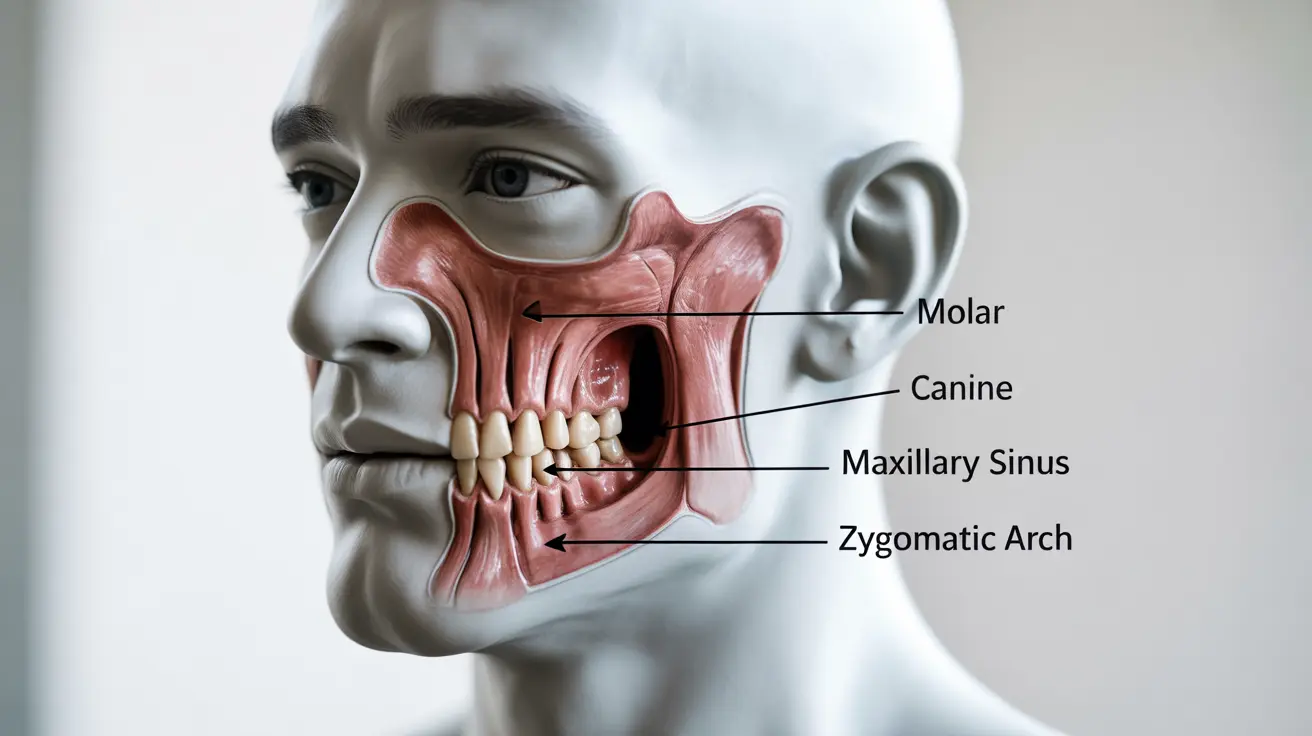Experiencing pain in your cheekbone can be both uncomfortable and concerning, especially when it's linked to chewing or teeth sensitivity. This type of pain can significantly impact daily activities like eating and speaking, making it essential to understand its potential causes and available treatments.
While cheekbone pain may stem from various sources, ranging from dental issues to sinus problems, identifying the underlying cause is crucial for effective treatment. Let's explore the common reasons behind cheekbone discomfort and learn when to seek professional help.
Common Causes of Cheekbone Pain
Dental Problems
Dental issues are frequent culprits behind cheekbone pain. These may include:
- Tooth infections or abscesses
- Cavities extending to the root
- Cracked or damaged teeth
- Gum disease
- Recent dental procedures
Sinus-Related Issues
The proximity of your sinuses to your cheekbones often creates a connection between sinus problems and facial pain. Common sinus-related causes include:
- Sinusitis (acute or chronic)
- Sinus pressure from allergies
- Upper respiratory infections
- Nasal polyps
TMJ Disorders
Temporomandibular joint (TMJ) disorders can cause pain that radiates through the jaw and cheekbone area. Signs of TMJ involvement often include:
- Clicking or popping sounds when opening the mouth
- Jaw stiffness
- Limited jaw movement
- Pain while chewing
- Facial muscle tension
When to Seek Medical Attention
While some cases of cheekbone pain may resolve on their own, certain symptoms warrant immediate medical attention:
- Severe or persistent pain lasting more than a few days
- Fever accompanied by facial pain
- Significant swelling or redness
- Difficulty breathing or swallowing
- Changes in vision or eye movement
Treatment Approaches
Home Remedies
Several self-care measures can help alleviate mild cheekbone pain:
- Applying warm compresses
- Over-the-counter pain relievers
- Gentle facial massage
- Staying hydrated
- Avoiding hard or chewy foods
Professional Treatment Options
Depending on the underlying cause, professional treatments may include:
- Dental procedures for tooth-related issues
- Antibiotics for bacterial infections
- Physical therapy for TMJ disorders
- Sinus medications or procedures
- Custom-fitted night guards for teeth grinding
Frequently Asked Questions
Why does my cheekbone hurt when I chew or touch my teeth?
Cheekbone pain during chewing or teeth touching often indicates dental problems such as infections, cavities, or TMJ disorders. The pain occurs because the nerves connecting your teeth and facial structures are closely interconnected, causing referred pain throughout the area.
Could a sinus infection be causing my cheekbone and tooth pain?
Yes, sinus infections commonly cause cheekbone and tooth pain due to inflammation and pressure in the maxillary sinuses, which are located directly above your upper teeth. This pressure can create pain that mimics dental problems.
How can I tell if my cheekbone pain is related to dental problems or TMJ disorder?
Dental problems typically cause localized pain and sensitivity to temperature or pressure, while TMJ disorders often present with jaw clicking, limited mouth opening, and pain that extends through the jaw and cheek area. A professional evaluation is necessary for accurate diagnosis.
When should I see a doctor or dentist for persistent cheekbone and tooth pain?
Seek professional help if pain persists for more than a few days, is severe, or is accompanied by fever, swelling, or difficulty breathing. Also consult a professional if the pain significantly impacts daily activities like eating or speaking.
What treatments help relieve cheekbone pain caused by teeth grinding or nerve issues?
Treatment options may include wearing a night guard for teeth grinding, medication for nerve pain, physical therapy exercises, and stress management techniques. Your healthcare provider can recommend the most appropriate treatment based on the specific cause of your pain.




